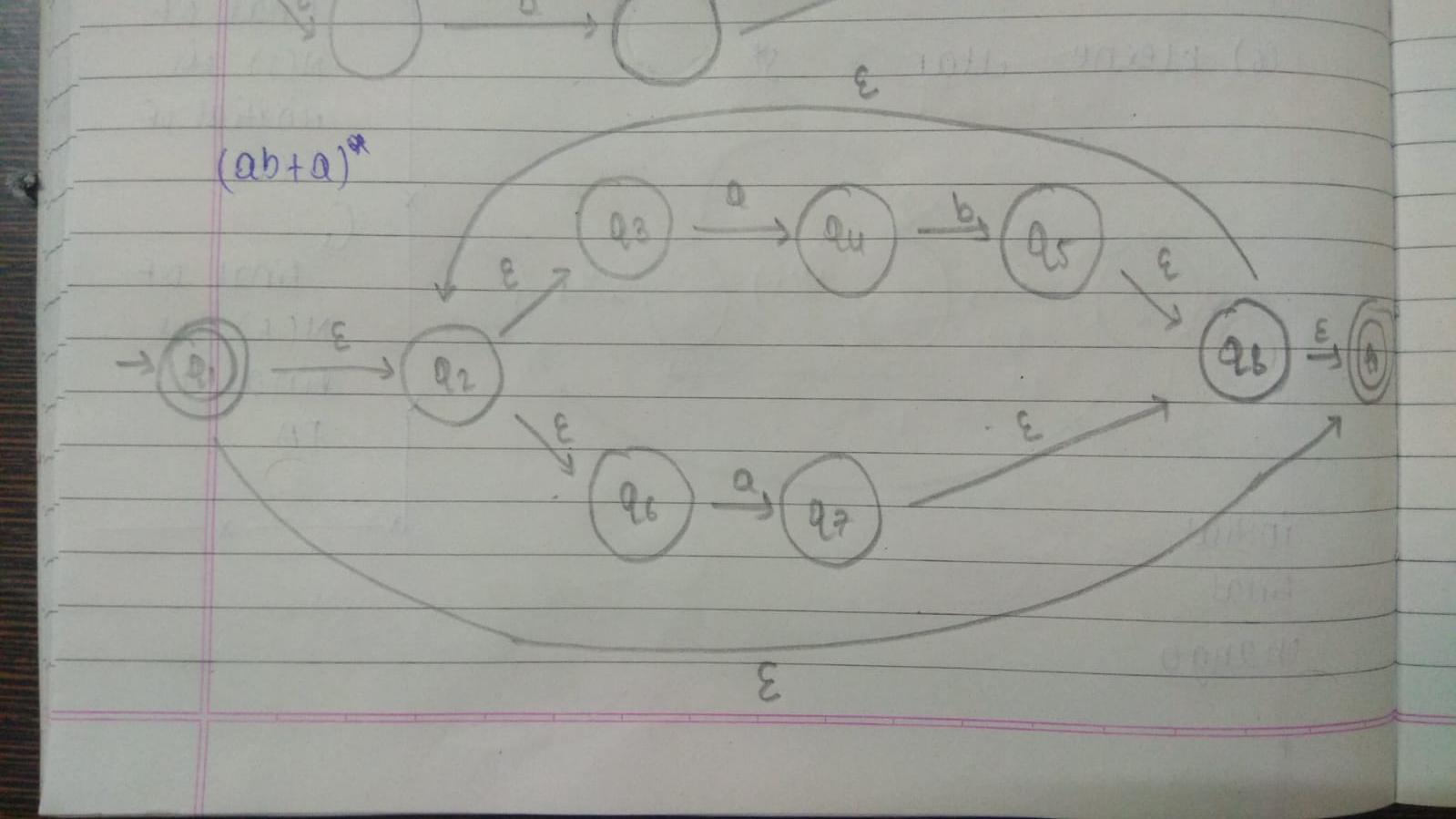You should try the substitutions in order so that you don't get a loop, here is the solution
$q1 = \varepsilon$
$q_2 = q_1 \varepsilon + q_8 \varepsilon$
$q_3 = q_2 \varepsilon$
$q_4 = q_3a$
$q_5 = q_4b$
$q_6 = q_2 \varepsilon$
$q_7 = q_6a$
$q_8 = q5 \varepsilon + q_6 \varepsilon$
$q_9 = q_8 \varepsilon + q1 \varepsilon$
Substitute for $q_1 = \varepsilon$ in every other rule
$q_2 = \varepsilon \varepsilon + q_8 \varepsilon = \varepsilon + q_8 \varepsilon$
$q_3 = q_2 \varepsilon$
$q_4 = q_3a$
$q_5 = q_4b$
$q_6 = q_2 \varepsilon$
$q_7 = q_6a$
$q_8 = q5 \varepsilon + q_6 \varepsilon$
$q_9 = q_8 \varepsilon + \varepsilon \varepsilon = q_8 \varepsilon + \varepsilon $
Substitute for $q_2 = \varepsilon + q_8 \varepsilon$ in every other rule
$q_3 = (\varepsilon + q_8 \varepsilon) \varepsilon = \varepsilon + q_8 \varepsilon$
$q_4 = q_3a$
$q_5 = q_4b$
$q_6 = (\varepsilon + q_8 \varepsilon) \varepsilon = \varepsilon + q_8 \varepsilon$
$q_7 = q_6a$
$q_8 = q5 \varepsilon + q_6 \varepsilon$
$q_9 = q_8 \varepsilon + \varepsilon$
Substitute for $q_3 = \varepsilon + q_8 \varepsilon$ in every other rule
$q_4 = (\varepsilon + q_8 \varepsilon)a = a + q_8a$
$q_5 = q_4b$
$q_6 = \varepsilon + q_8 \varepsilon$
$q_7 = q_6a$
$q_8 = q5 \varepsilon + q_6 \varepsilon$
$q_9 = q_8 \varepsilon + \varepsilon$
Substitute for $q_4 = a + q_8a$ in every other rule
$q_5 = (a + q_8a)b = ab + q_8ab$
$q_6 = \varepsilon + q_8 \varepsilon$
$q_7 = q_6a$
$q_8 = q5 \varepsilon + q_6 \varepsilon$
$q_9 = q_8 \varepsilon + \varepsilon$
Substitute for $q_5 = ab + q_8ab$ in every other rule
$q_6 = \varepsilon + q_8 \varepsilon$
$q_7 = q_6a$
$q_8 = (ab + q_8ab) \varepsilon + q_7 \varepsilon = ab + q_8ab + q_7 \varepsilon$
$q_9 = q_8 \varepsilon + \varepsilon$
Substitute for $q_6 = \varepsilon + q_8 \varepsilon$ in every other rule
$q_7 = (\varepsilon + q_8 \varepsilon)a = a + q_8 a$
$q_8 = ab + q_8ab + q_7 \varepsilon $
$q_9 = q_8 \varepsilon + \varepsilon$
Substitute for $q_7 = a + q_8 a$ in every other rule
$q_8 = ab + q_8ab + (a + q_8 a) \varepsilon = ab + q_8 ab + a + q_8 a = a + ab + q_8(a+ab)$
Now we can apply Arden's Theroem
$q_8 = a + ab + (a+ab)^* = (a+ab)^*$
$q_9 = q_8 \varepsilon + \varepsilon$
Substitute for $q_8 = a + (ab)^*$
$q_9 = (a+ab)^* \varepsilon + \varepsilon = (a+ab)^*$
And here is our solution :)

